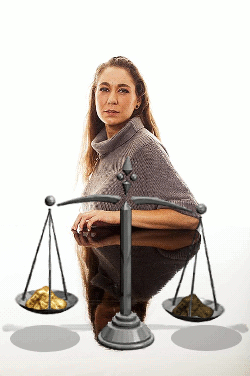
We’ve all heard that communication happens via one or more of three ways:
Visual – this refers to what we see and how we present ourselves
Auditory – this refers to what we hear and say
Kinaesthetic – this refers to what we feel and/or do
The impact of the communication will vary depending on each of our own filters ie our past experiences and/or understanding that will vary the way I see, hear or feel something compared to how you see, hear or feel it.
For example, we might be planning to go for a walk and you suddenly come down with a headache. Depending on my previous experience with you, and with other people in my life, my interpretation of that might be that the headache is actually genuine or that maybe the headache is just your way of getting out of it.
The way we experience love is via exactly the same channels:
Visual – what I see in my relationship with you
Auditory – what I hear you say in my conversations with you
Kinaesthetic – what I feel when you touch me or when you do things for me
And just as a piece of communication may be changed, depending on our previous life experience, so too will the perception of the other in the relationship.
To take this one step further; depending on how I experienced, or didn’t experience, love as I was growing up will actually be even more important to how I experience you as you are, what you say or what you do.
My experience of the present therefore is really less about you and actually more about how I was treated in the past and the decisions I made about myself and others as a consequence.
What I missed out as a child is what I crave most now.
Let me take this idea even further. We all know that there are two factors involved in creating who I am as a person. One pertains to “nature”; some quality that is already present at my birth and may in part be genetically inherited. The other pertains to “nurture”; the quality of the physical environment in which I was raised including how my parents and others cared for me. And while the debate still continues about which is most critical my belief is that both are equally so.
So what does all this have to do with Love?
My point here is that if my physical needs were taken care of as a child then it’s fairly likely that that will not be the love language I seek. On the contrary if I was not told, or did not hear, often enough that I was valued and loved and wanted as a child then it is likely that this will still be what I crave most and will be the love language I seek and respond most to.
And if this is the case for me then I might presume that this is how it is for everyone.
But guess what? It’s not. So just because my language of love is for example, to hear words of endearment, my partner may have a whole different love language, for example, his might be to have things done for him, such as the preparation of a nice meal, as he did not receive that as a child.
Additionally I might have several love languages so I might be regarded as bi-lingual or even multi-lingual.
Let’s complicate this a little further.
Now just because I missed out on certain things as a child and these have become my love language as an adult it doesn’t mean that I will accept offers of love in these ways.
Going too far? Ok I’ll save that for another article.
So to come back to the topic; the crux of all of this is for each of us to learn what is our preferred language of love and to ask for what I need in a clear and direct way. Equally it is important for me not to assume that I know what my partners love language is but to ask and, in love, offer that to him or her.
Here are the six possible summary statements of your preferred love language:
- What you do affects me more than what you say.
- What you do affects me more than how you touch me.
- What you say affects me more than what you do.
- What you say affects me more than how you touch me.
- How you touch me affects me more than what you say.
- How you touch me affects me more than what you do.
To find out what your preferred love language is head on over to my site and take the quiz. You’ll find it under the heading of “Quiz’s and Questionnaires”.
Take the quiz with your partner. You may be surprised at what you discover about each other.
So until next time – Relate with Love



 In any relationship worth having conflicts and fights are bound to arise. The true test of the relationship is whether or not you feel that it is worthwhile to resolve these conflicts and if you are able to do so in a fair and objective way.
In any relationship worth having conflicts and fights are bound to arise. The true test of the relationship is whether or not you feel that it is worthwhile to resolve these conflicts and if you are able to do so in a fair and objective way.




 When your relationship begins to falter, and there will be times it will, you may want to find something or someone to blame. You may even be left wondering if this was something that you did or said or something that they did or said.
When your relationship begins to falter, and there will be times it will, you may want to find something or someone to blame. You may even be left wondering if this was something that you did or said or something that they did or said.